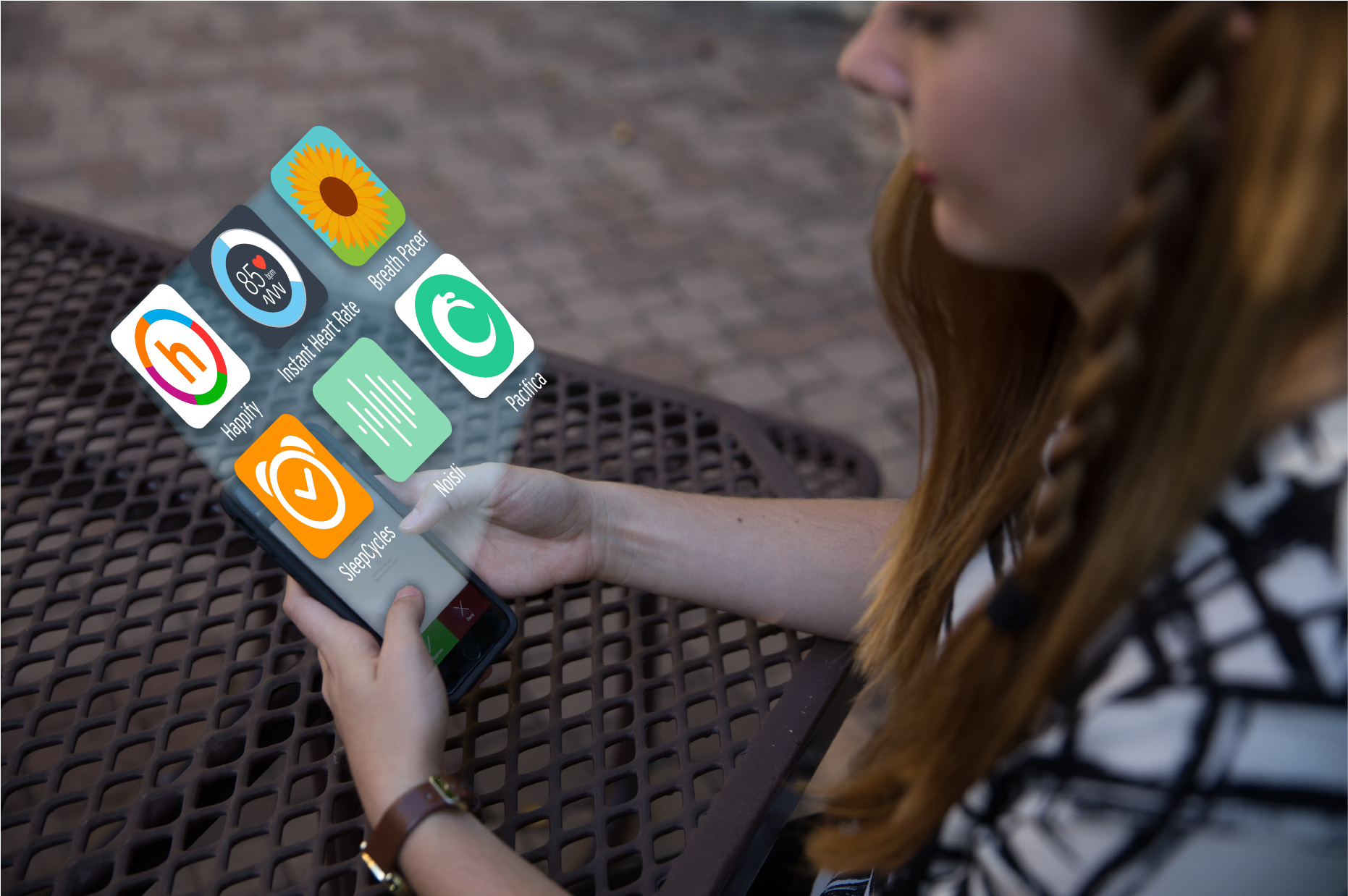
Ninety percent of mental health app users reported increased confidence, motivation and sense of control after use, according to a survey by BYU researchers. Users also reported positive changes in attitude, beliefs and behaviors.
Professors Josh West, Ben Crookston and Cougar Hall teamed up to conduct the study. They combined their knowledge of public health as well as past research on mobile technologies to understand the benefits of self-help apps.
“If apps contain some of the basic theoretical constructs or understandings that we have in public health already, if they are able to incorporate theory, then most likely they’re going to provide a benefit to people,” Hall said. “Our survey sample (of 150 people) was really small, but that’s exactly what we found.”
The study collected data from voluntary surveys over three weeks. Those who had used a mental or emotional health app in the last six months qualified for the survey.
One challenge of studying this class of apps is there are tens of thousands of apps to choose from, according to West. He said the best way to learn about the use of self-help apps was to measure user engagement, rather than specific programs.
The findings of the study suggest the majority of people benefit from using self-help apps. But ultimately, those apps should be a supplement for therapy, medication and other professional care, according to Crookston.
“Maybe even for someone who has much more moderate or modest challenges associated with this, if they find the right app, this might be enough for them on a fairly routine basis,” Crookston said.
When used in conjunction with other treatments suggested by a professional, these apps can build the skills an individual learns in therapy and track their mood and behaviors, according to BYU psychologist Klint Hobbs.
Self-help apps often have a low cost and are available on most devices, making them feasible options for most people. Hobbs said mobile technologies are increasing in popularity due to personal convenience and privacy.
“I think a big reason for self-help technology becoming more common is that there are shortages of mental health professionals nationwide, so access to a therapist is sometimes more difficult,” Hobbs said. “Also, self-help technology is very private and can appeal to those who hold some traditional stigma about mental health services.”
Hobbs said the apps’ popularity may be because of their immediacy and ease of use. But there is a lack of accountability involved with relying on an app instead of meeting with a therapist.
Although the research shows using self-help apps increases motivation, Hobbs said users must be motivated to open the app in the first place. Mental health issues can hinder motivation, and it might be difficult for some to take the initiative to start a program on their own.
The professors don’t have plans for a follow-up study, but they do plan to continue researching how mobile technologies intersect with public health.
“We want to be more inclusive, not exclusive,” Hall said. “We think mobile apps in harnessing that technology is in line with that basic philosophy of public health.”





